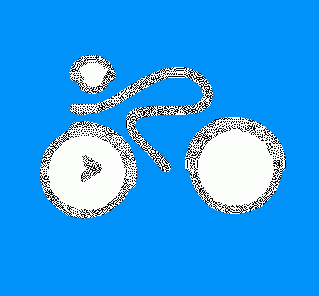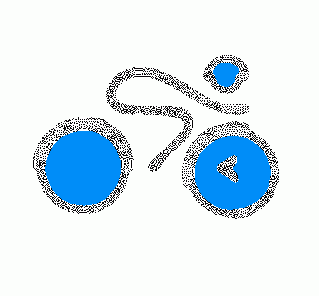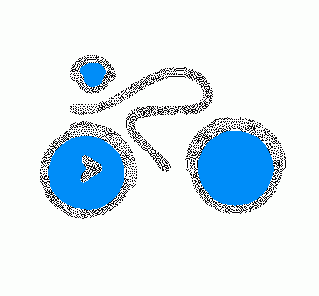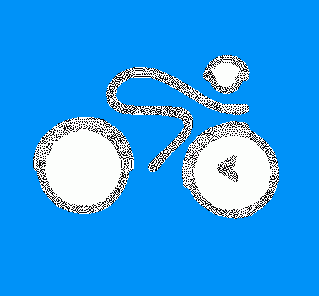| Newsletter - 2002 Archive |

|

|
Cycling Club |

|

|
| Newsletter - 2002 Archive |

|

|
Cycling Club |

|

|
Next--->
Preamble (Editor)
The ACP has instituted a new rule for the Flèche that states: The longest rest stop a Flèche team may take in any one spot is TWO HOURS.
Members of our club are worried that the rule is a safety issue. Whatever else, please ride (and drive) safely.
I for one would like to see the rule challenged from a safety
standpoint. I would also like to analyze the liability risks of
our enforcing it, and whether the insurance agents are on board
with it. I would not limit that to our insurer, but ACP's insurers
as well and I would like to see a statement from their insurer
to that effect. Is this from the same folks that do not allow
aerobars because they cannot insure themselves for PBP. It may
not be a big deal for those who do not easily fall asleep. But
for someone who has fallen asleep many times on bike and on occasion
in the car on the way home from a Randonneur ride, I can say without
a shadow of doubt that the dangers of forcing people to participate
with effectively less than 1 hour of sleep is far more risky than
anything that one can imagine going wrong with aerobars.
Just look at the statistics of road accidents due to falling asleep on the road. We have talked about risk management in our executive, but how well do we address it? I do not believe we should hide under the umbrella of "that's what we have insurance for" and just pass it off with "most of us do not get much sleep anyway" or just argue "riders have signed a waiver and they realize riding is dangerous" or dismiss it with "we were just following rules".
Physiological makeup of all each of our riders is different -- is there a purpose to pushing some of them past the point they can operate a vehicle safely? Is it negligent to do so?
I want to ask others a question. Have you
ever fallen asleep on your bike? If you have, I would like you
to compare that out of control feeling when you wake (which is
the very first thing I am aware of) to the following:
1) riding without lights
2) driving drunk
Those I have asked so far say it is just as scary. Yet we are
entering a new era where we are going to force participants to
have no choice but to operate a vehicle without sleep on open
roads.
Some statistics from the web, would indicate to me that we should be concerned, and so will the insurance companies:
Australian study: "Drivers are especially vulnerable, the researchers warned. They found that people who drive after being awake 17-19 hours performed worse than those with a blood alcohol level of 0.05 percent. That's the legal limit in most western European countries."
US: Driver fatigue contributes to 30-40% of all truck accidents.
SW England: 16 - 20 % of road accidents are caused by fatigue. UK: 11 % of those interviewed admitted falling asleep while driving.
National Commission on Sleep Disorders: "The Commission was able to definitely assign 15.9 billion dollars as direct cost of sleep disorders and sleep deprivation with an estimated 50 to 100 billion in indirect and related costs when the cost of individual accidents associated with sleep disorders and sleep deprivation are assessed including litigation, destruction of property, hospitalization, and death."
In my own case, sleep is seriously critical. For that reason, I have never driven a car after a Flèche -- I would almost assuredly take someone's life if not my own. I would not have been able to complete PBP if I had not been able to get 4 or more hours of sleep each night, and a long sleep the afternoon before the start. Same thing with RM1200, which included a 6-hour sleep. On most rides I have tried to arrange someone else to drive my car home. I have only done one Flèche that comes close to less than 2 hours sleep. I always carry caffeine pills but they take more than half an hour to kick in. Luckily I have never had an accident due to falling asleep, but in my own case, I recognize I am far more dangerous on the road with sleep deprivation than a drunk, and I try to take action accordingly. But what is wrong with letting a rider try to manage his/her own safety. I think it is wrong to take that choice away from a rider. This rule does just that.
(OK, with my secrets out, I guess no one will now be tripping over themselves to ask me to be on their Flèche team.)
Is anyone else a bit edgy about the new 2-hour maximum stop Flèche Rule? Or, is it just me because I fell asleep on my bike more than 50 times on Highway 7 after Mission at the end of the 300 last year before the caffeine pills kicked in? I know I am not the only one who has fallen asleep on a bike, and the Flèche is a team event, where falling asleep can put others on the team at some risk as well. I think it is the wrong move from a safety aspect for us to enforce a rule that limits rider's sleep to 1 hour or less (because that's what it turns out to be if you subtract eat, shower and card signing times). For some riders it will not matter as they seem to manage without sleep but for others it does.
What I worry about most are those riders that do not know their own capabilities (or lack of them) with respect to falling asleep which strikes without warning.
No one can claim that forcing someone to be more deprived of sleep when they operate a vehicle on our roads "does not increase risk". Further, considering the (office party, house party) lawsuits, I am sure that if someone got into a car after a Flèche and there was a serious accident through falling asleep, the directors of BC Randonneurs could most certainly be named in a law suit, even if it were just ICBC protecting their financial interests, let alone the families and livelihoods of those affected.
As organizers, I believe it is our obligation to do everything in our capacity to ensure a safe a ride as possible. Under the law's eyes there will be no exceptions to that rule. If we are negligent in that we may just wind up on the wrong side of a liability suit. However, in my mind the tragedy if something did go wrong is still far worse than my fear of safeguarding ourselves from liability exposure.
The only purpose of the new rule as far as I can see is to get more serious racers, or to detract from it being a social event. Does anyone see any useful aspects of this new rule? The downside risk of injury or potential loss of life from someone falling asleep on the bike or more seriously behind the wheel of a car on the way home after a hot pool and large meal is a far more serious consideration in my opinion.
I suggest that we ask ACP for a 1-year exemption from enforcing this rule while we discuss its safety aspects with both our insurance companies and theirs.
_